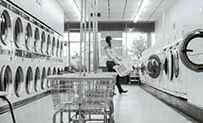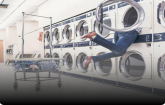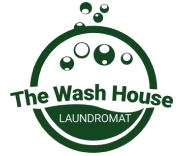Laundry And Lifestyle: Tailoring Laundry Services To Fit Modern Lifestyles

In our fast-paced society, daily routines must adapt to the evolving demands of modern lifestyles. Among these routines, laundry services have undergone a significant transformation, moving from a one-size-fits-all model to a more personalized approach. This shift has been particularly driven by varying consumer needs ranging from the busy professional to the health-conscious individual.
Personalized Laundry Services: Meeting Individual Needs
The concept of personalized laundry services has gained momentum, reflecting broader trends towards customization in service industries. This approach caters to specific preferences and schedules, making laundry a less cumbersome task for consumers.
Mobile and Online Scheduling: This feature allows customers to manage their laundry tasks on-the-go. With a few taps on a smartphone, users can schedule pickups and deliveries at their convenience, integrating laundry seamlessly into their daily routines. For instance, a busy lawyer can schedule a late-evening pickup, ensuring that their professional attire is ready and refreshed for the next busy day.
Customized Cleaning Options: Different lifestyles and preferences necessitate different laundry care. For example, families with young children might prefer hypoallergenic detergents, while environmentally conscious consumers might opt for eco-friendly cleaning options. Providing these choices not only meets customer needs but also enhances satisfaction by aligning with their values.
Subscription Services: Regularly scheduled services remove the need to think about when to do the laundry. This can be particularly beneficial for individuals with predictable routines, such as weekly gym-goers who need fresh workout clothes or busy parents who have ongoing laundry needs.
Express Services: For those unexpected life moments—such as an unplanned business trip or a last-minute social event—same-day services ensure that clients have the clothing they need, when they need it, without stress.
Technological Integration: Streamlining Operations
Technology is a key enabler in tailoring laundry services to modern lifestyles. It not only enhances operational efficiency but also improves customer experience by adding convenience and reliability.
Apps and Digital Platforms: These tools facilitate user-friendly experiences, from booking to payment. They often include features like order tracking, which provides transparency about the status of laundry, and customization options, allowing users to select specific services and preferences directly from their mobile device.
Smart Machines: Advanced laundry equipment can adjust settings based on fabric type and color, and can even detect the size of the load to optimize water and energy consumption. This technology supports a range of fabric care needs, from delicate silks to sturdy cottons, ensuring that all items are washed optimally.
Automated Notifications: Real-time updates and reminders keep customers informed about their laundry status. This is particularly useful for those with hectic schedules, providing peace of mind that their laundry needs are being managed efficiently.
The Wash House Laundromat’s Approach
The Wash House Laundromat is a prime example of how laundromats can innovate to meet the demands of modern consumers. Their services include:
Free Delivery Services: Essential for those who cannot visit the laundromat due to time constraints, offering convenience and time savings.
Dry Cleaning for All Fabric Types: Ensures that every garment, regardless of material, receives the appropriate care.
Same-Day Services: Critical for meeting the urgent needs of customers who require fast turnaround.
Technology Integration: Their app enhances customer interaction by simplifying appointment scheduling, service tracking, and payment processes, aligning with the digital habits of contemporary consumers.
Challenges and Strategic Solutions
While personalized services offer numerous benefits, they also present challenges such as maintaining quality across varied service offerings and managing efficient delivery logistics. To address these, laundromats can:
Implement Scalable Solutions: Adapting operations to handle peak times and varying demand ensures reliability and customer satisfaction.
Maintain Rigorous Quality Controls: Establishing stringent quality checks ensures consistent service delivery, crucial for building trust and customer loyalty.
Leverage Customer Feedback: Actively seeking and responding to customer feedback can drive continuous improvement, helping services to evolve in line with consumer expectations.
Looking Ahead: The Future of Laundry Services
As we peer into the future of laundry services, several emerging technologies and consumer trends point towards a more automated, personalized, and environmentally conscious approach. The integration of artificial intelligence (AI), the Internet of Things (IoT), and advanced biotechnology in laundry processes is not just a possibility—it's rapidly becoming a reality. These advancements promise to make laundry services more efficient, convenient, and tailored to individual preferences and environmental concerns.
Artificial Intelligence in Laundry Operations
AI is set to revolutionize the laundry industry by enhancing both operational efficiency and customer experience. One of the most anticipated applications is the use of AI for predictive analytics. This technology can analyze customer laundry habits and predict when they are likely to need laundry services, enabling businesses to proactively offer their services at just the right time. Furthermore, AI can optimize laundry processes by determining the most energy and water-efficient ways to wash different types of fabrics, significantly reducing the ecological footprint of laundry operations.
AI could also enhance the sorting process, a traditionally labor-intensive task. With AI-driven systems, laundromats could automatically sort laundry by color, fabric type, and even by specific cleaning requirements, minimizing human error and improving service quality. Moreover, AI can assist in dynamic pricing models where prices are adjusted based on demand, the volume of clothes, and even weather conditions, ensuring optimal operational efficiency.
Internet of Things (IoT) Enhancing User Experience
The IoT promises to bring a new level of interconnectivity to laundry appliances and services. Smart washing machines and dryers that can be remotely controlled and monitored via smartphones are just the beginning. These devices could also provide users with real-time updates on the status of their laundry, from washing to drying stages, and alert them once the laundry is ready for pickup or delivery.
Furthermore, IoT technology can facilitate better resource management. For instance, smart machines can detect the load's weight and adjust water and detergent use accordingly, promoting sustainability. Additionally, IoT sensors could monitor machine health to predict and prevent breakdowns before they occur, reducing downtime and maintenance costs.
Advancements in Fabric Care and Biotechnology
The future of laundry might also see significant advancements in fabric care through biotechnology. Enzymes and other bio-based cleaning agents are being developed to provide more effective and sustainable alternatives to conventional detergents. These bio-detergents can break down stains and odors more effectively at lower temperatures, conserving energy and reducing wear and tear on fabrics.
Emerging biotechnologies could also introduce self-cleaning fabrics. These materials are treated with microscopic coatings that repel stains and odors, drastically reducing the need for frequent washing. This technology not only conserves water and energy but also extends the lifespan of garments, offering a sustainable solution to the fast-fashion problem.
Personalization and Enhanced Customer Service
As technology evolves, so too does the expectation for personalized services. Future laundry services will likely offer even more customized options, tailored to the specific preferences and schedules of individual customers. This could include choosing specific fragrances for detergents, hypoallergenic options, or specialized fabric care treatments.
Moreover, customer service can be enhanced through virtual assistants and chatbots that provide instant responses to queries and seamless booking experiences. These AI-driven systems can learn from customer interactions, improving their ability to handle inquiries and provide personalized recommendations over time.
Conclusion
The future of laundry services is on the brink of transformative changes, with technology paving the way for smarter, more efficient, and more personalized laundry experiences. These advancements promise not only to meet the evolving needs of modern consumers but also to address the environmental challenges associated with traditional laundry practices. As we move forward, the laundry industry is set to become an example of how innovation can revolutionize mundane tasks, making them more integrated and less intrusive in our daily lives.



















